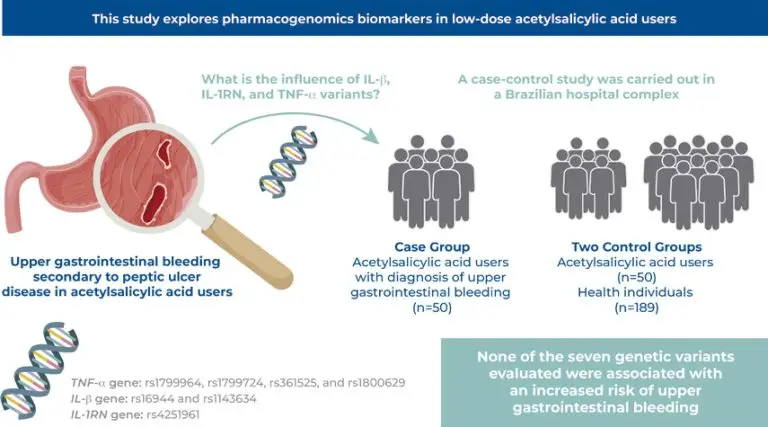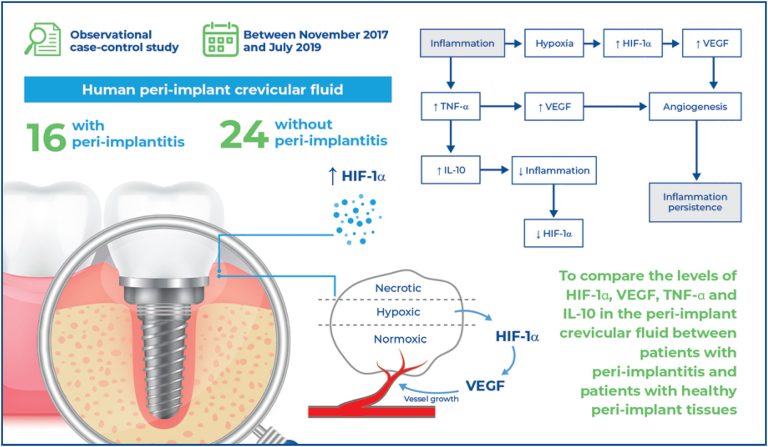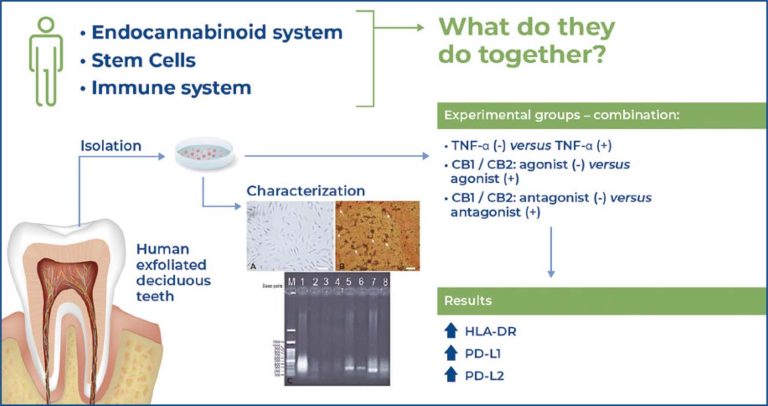12/Aug/2024
Influence of IL-β, IL-1RN, and TNF-α variants on the risk of acetylsalicylic acid-induced upper gastrointestinal bleeding: a case-control study
DOI: 10.31744/einstein_journal/2024AO0746
Highlights This study contributes data on the pharmacogenomics of acetylsalicylic acid. Brazilian data contribute to reducing the lack of diversity in genetic studies examining unrepresented groups. The genetic variants evaluated were not associated with gastrointestinal bleeding. ABSTRACT Objective: The use of acetylsalicylic acid, even in low doses, may be associated with the onset of upper gastrointestinal bleeding as an idiosyncratic response. Considering the role of the genetic background in inter-individual responses to pharmacotherapy, we aimed to investigate the role of […]
Keywords: Drug-related side effects and adverse reactions; Interleukins; Pharmacogenetics; Platelet aggregation inhibitors; Tumor necrosis factor-alpha
26/Feb/2024
New immunological aspects of peri-implantitis
DOI: 10.31744/einstein_journal/2024AO0396
Highlights Higher levels of HIF-1α in patients with peri-implantitis occurred possibly due to persistent hypoxia triggered by inflammation. Tissue hypoxia in peri-implantitis induced increase in HIF-1α consequently increased VEGF and angiogenesis, contributing to the persistence of inflammation. ABSTRACT Objective: This study aimed to compare the levels of HIF1-α, VEGF, TNF-α, and IL-10 in the periimplant crevicular fluid of patients with and without peri-implantitis. Methods: Forty patients, comprising 16 with and 24 without peri-implantitis were selected. Results: Patients with peri-implantitis exhibited […]
Keywords: Hypoxia-inducible factor 1; Interleukin-10; Peri-implantitis; Tumor necrosis factor-alpha; Vascular endothelial growth factors
30/Oct/2023
Tumor necrosis factor α, and agonist and antagonists of cannabinoid receptor type 1 and type 2 alter the immunophenotype of stem cells from human exfoliated deciduous teeth
einstein (São Paulo). 30/Oct/2023;21:eAO0405.
View Article30/Oct/2023
Tumor necrosis factor α, and agonist and antagonists of cannabinoid receptor type 1 and type 2 alter the immunophenotype of stem cells from human exfoliated deciduous teeth
DOI: 10.31744/einstein_journal/2023AO0405
Highlights Inhibition of endocannabinoid receptors and TNF-α led to an increase in HLA-DR, PD-L1, and PD-L2 levels in stem cells from human exfoliated deciduous teeth. This study shows the interaction between mesenchymal stromal cells and the immune and endocannabinoid systems. ABSTRACT Objective To verify the involvement of the endocannabinoid system in the immunomodulatory profile of stem cells from human exfoliated deciduous teeth, in the presence or absence of TNF-α, and agonist and antagonists of CB1 and CB2. Methods Stem cells […]
Keywords: Endocannabinoids; Immunomodulation; Mesenchymal stem cells; Receptor, cannabinoid, CB1; Receptor, cannabinoid, CB2; Tooth, deciduous; Tumor necrosis factor-alpha
18/Mar/2019
Electrocardiographic changes in spondyloarthritis and use of anti-TNF-α drugs: a retrospective study with 100 patients
DOI: 10.31744/einstein_journal/2019AO4539
ABSTRACT Objective To investigate the prevalence of electrocardiographic changes in patients with spondyloarthritis and to correlate these changes with use of anti-tumor necrosis factor-alpha (TNF-α) drugs and HLA-B27 positivity. Methods Retrospective study including 100 patients diagnosed with spondyloarthritis according to Assessment of SpondyloArthritis International Society (ASAS) criteria and 50 controls. Epidemiological and clinical features, results of inflammatory activity tests, HLA-B27 positivity, and medication use data were extracted from medical records. Disease activity was assessed using the Bath Ankylosing Spondylitis Disease […]
Keywords: Anti TNF-α; Bundle-branch block; Electrocardiography; HLA B27 antigen; Spondylarthropathies; Tumor necrosis factor-alpha





